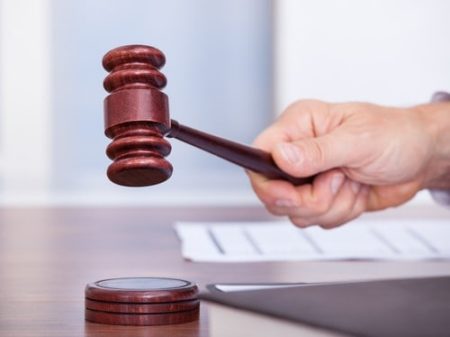Rotherham-based metals recycling company Ronald Hull Jnr has won an appeal against HMRC’s decision to deny it nearly £600,000 in credit for input tax.
HMRC had denied the payments as it claimed that 389 transactions between July 2013 and January 2014 were made to two companies which HMRC claimed were “fraudulent traders”.
However, in a judgement handed down on 4 February by Tribunal Judge, Sarah Allatt, it was found that Ronald Hull Jnr “did not know and should not have known that its transactions were connected to fraud”.
“These transactions were in the ordinary course of its business, there was nothing in the transactions themselves that were suspicious,” Judge Allatt said.
In a statement to letsrecyle.com a spokesperson for HMRC said: ““We are considering the judgement of the tribunal.”
Input tax is VAT paid for goods and services used for business purposes and can ordinarily be recovered in the form of deductions from any output tax paid, subject to certain provisions. More details can be found here.
Transactions
The case was heard in the First-Tier Tribunal Tax Chamber between 7-17th October 2019 and details were made publicly available last month on the government’s Tribunals Judiciary at Finance and Tax Decisions.
The decision document explained that 383 of the 389 transactions in question were made to a now dissolved company called Barnsley Metal Company (BMC).
According to the court documents, the transactions with BMC totalled more than £2.6 million, presenting 14% of Ronald Hull Jnr’s purchases between July 2013 and January 2014.
HMRC allege that BMC was a “fraudulent defaulting trader” and failed to account or pay to HMRC any of the VAT corresponding to the 383 sales.
The other six transactions were with a company called Carwood Commodities Limited with a total net value of £378,000, which represented under 2% of total sales in that period.
HMRC allege that in each of these six transactions, CCL was supplied by Kent-based GPSE (company number 05925169), which HMRC alleges was a fraudulent defaulting trader.
Ronald Hull Jnr raised a number of grounds of appeal saying that HMRC had not proved fraud in the companies and its assessment not to give the company input tax credits was “not competent”.
Evidence
Justice Allatt explained that she heard from Mr Robert Payne of HMRC as part of evidence. Mr Payne was the ‘decision making officer’ who issued the decision to deny the input tax claimed. Mr Payne produced three witness statements and gave oral evidence.
Ronald Hull
On behalf of Ronald Hull Jr, the group financial accountant gave evidence and was described as a “very competent and clear witness” by the judge.
The judge said the group financial accountant had explained “they had never been given any literature on looking out for what HMRC referred to as phoenix companies. The subject of phoenix companies was never discussed at any meeting she attended with HMRC,” the document stated.
The court report also states that the group financial accountant noted that the due diligence carried out by the finance office when making a sale consisted of credit checking the customer and then asking a department manager involved in the potential sale for the likely value of the order and the customer details such as the invoice address, registered office and company registration number.
It also noted that no need was seen as to running a credit report as part of the due diligence process for a supplier because there was no financial risk to the company. “The Appellant is paying suppliers for a supply of materials which the appellant has physically received.”
Decision
In making her decision, Judge Allatt said HMRC needed to prove that the taxable person knew or should have known that, by the purchase, he was participating in a transaction connected with the fraudulent evasion of VAT.
She found GPSE was not a defaulting trader. “The most likely explanation for the default by GPSE Ltd is that the business failed due to the deregistration by HMRC”. Despite finding that BMC was a ‘defaulting trader’, as its transactions with HMRC were “dishonest and the controlling minds had a history of similar frauds”, she said that Ronald Hull Jnr “did not know and should not have known that its transactions with BMC were connected to fraud.”
“These transactions were in the ordinary course of its business, there was nothing in the transactions themselves that were suspicious. RHJ Ltd did not have the means of knowledge to uncover the history of the businesses and further due diligence would not have revealed conclusive indicators of fraud”.
When contacted by letsrecycle.com, Ronald Hull Jnr declined to comment on the case.
The post Ronald Hull Jnr wins appeal against HMRC appeared first on letsrecycle.com.
Source: letsrecycle.com Metal



